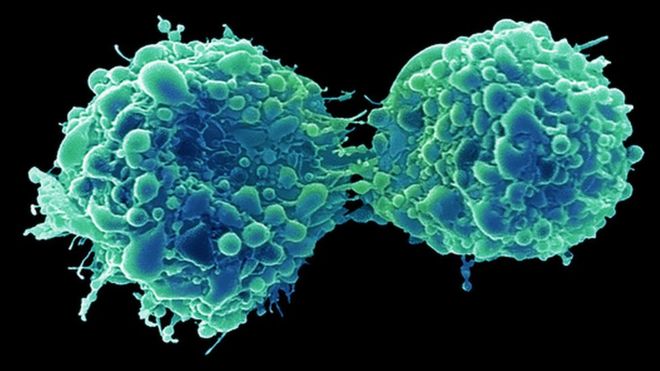Search for a Cure But Not For a Cold
"We are very excited about it. The virus gets into the cancer and replicates, like a little factory of viruses. It heats up the tumour environment, and is very specific in targeting the cancer -- it had the least toxicity I have seen for years."
"It's almost like a universal agent -- once it gets in, it kills the cancer. It could be combined with lots of other treatments."
"[Use of the virus could] revolutionize [treatment for the disease]."
"Non-muscle invasive bladder cancer is a highly prevalent illness that requires an intrusive and often lengthy treatment plan. Current treatment is ineffective and toxic in a proportion of patients and there is an urgent need for new therapies."
"Coxsackievirus could help revolutionize treatment for this type of cancer. Reduction of tumour burden and increased cancer cell death was observed in all patients and removed all trace of the disease in one patient following just one week of treatment, showing its potential effectiveness. Notably, no significant side effects were observed in any patient."
Professor Hardev Pandha, professor of Medical Oncology, University of Surrey
 |
| A virus of the common cold infected and killed bladder cancer cells in the study Science Photo Library |
A new British trial linking the University of Surrey, Guildford, United Kingdom with the Royal Surrey County Hospital has pioneered a new "revolutionary" treatment which succeeded in eradicating cancer in 15 patients in the unbelievable space of a week. In each of the patients cancer cells had been destroyed. In one of the cases, all traces of the disease had disappeared, according to the study, a conclusion the scientists involved were "very excited" about for these patients with bladder cancer.
The hope is that the treatment -- consisting of the common cold virus -- could become a "universal agent" in the fight against cancer, making conventional treatments such as chemotherapy completely redundant. The hope against hope is that this success could lead to further such findings on a much broader applicable scale, covering all types of cancers; in the final analysis succeeding where all other therapies have failed, to combat cancer.
Such news is always embraced. But it often turns out that triumphant perceptions of a "cure" being just around the next laboratory test, gaining huge public attention and acclaim for the scientists involved have been somewhat precipitate. Which hasn't dissuaded Professor Pandha and his colleagues from expressing buoyant optimism that cancer sufferers will find relief in their battle against the dread disease once this therapy goes mainstream.
The fifteen patients who took part in the study, given an infusion of the common cold virus before undergoing surgery to remove and examine tumours had reason to celebrate. Beyond reducing the size of all the tumours in the study patients, the treatment, applied through a catheter to the bladder, expressed no side-effects of any note in any of the patients, according to the researchers.
Further study and experimental research is always required before any form of therapeutic medicine becomes mainstream, and this one is no different. Euphoria at success and what it might mean for the future of humankind in treatment of cancer aside, the researchers expressed the hope that this treatment could be available in the next three years.
The study suggests an infusion of a strain of the common cold virus, named coxsackievirus (CVA21) had succeeded in inflaming the tumour to cause immune cells to react by streaming into the cancer environment to target and destroy the cancer cells established as a tumour in the bladder where immune cells do not exist. Once the virus targeted the cancer the virus began replicating, leading to a more powerful effect.
The particular type of cancer the study revolved around was non-muscle invasive bladder cancer, found in the tissue of the inner surface of the bladder. Post-surgery, when tissue samples were examined only the cancerous cells had been targeted, with other cells left intact, according to the researcher who had examined them. The virus infected cancerous cells, replicating itself and in the process causing the cells to rupture and die.
A just fate for a deadly disease. "Traditionally viruses have been associated with illness, however, in the right situation they can improve our overall health and well-being by destroying cancerous cells. Oncolytic viruses such as the coxsackievirus could transform the way we treat cancer and could signal a move away from more established treatments such as chemotherapy", explained Dr. Nicola Annels, research fellow, University of Surrey.
 |
A strain of the common cold virus has been
used to treat people with bladder cancer in the U.K., with impressive
early results. Photo credit: Getty royalty-free
|

0 Comments:
Post a Comment
<< Home